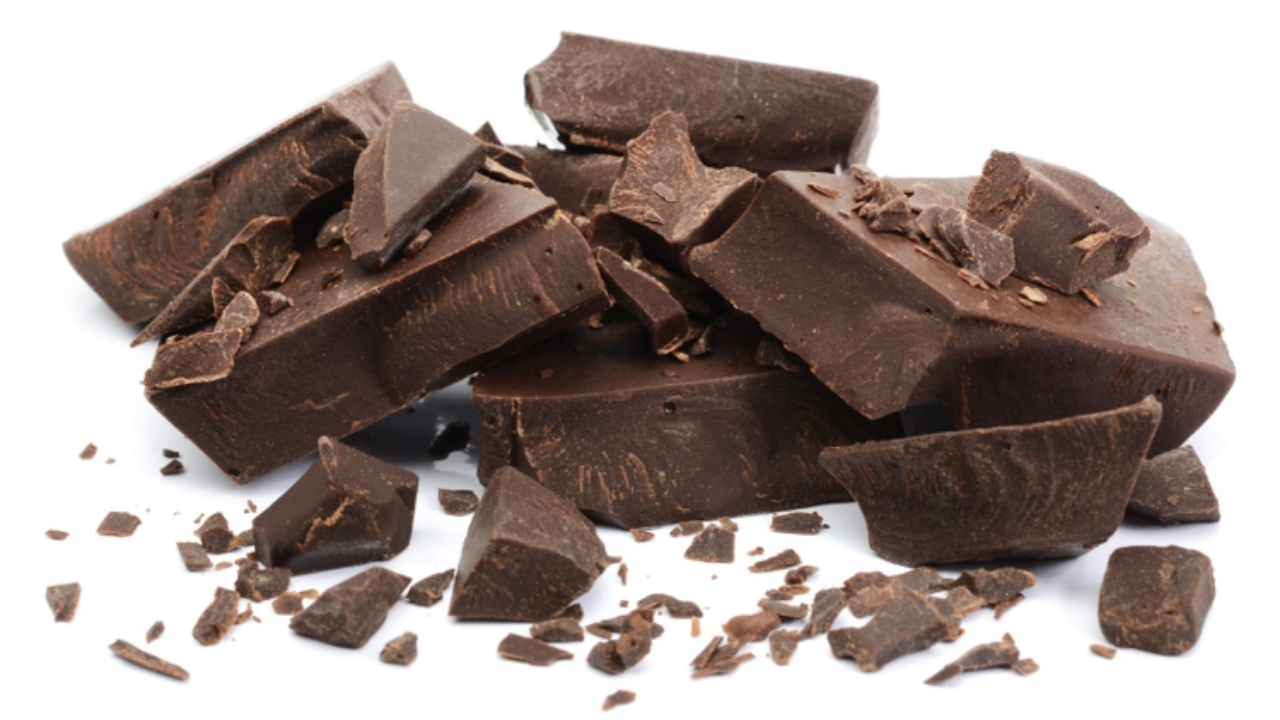Chocolate & Sports Performance – the next big thing?

There’s been lots of talk in the media about chocolate being good for you. From lowering blood pressure to increase HDL cholesterol, it’s the new wonder drug (apparently). Dark chocolate, in particular, is rich in cocoa, which is the seed part of the cocoa tree. Cocoa is rich in a compound called flavanols, a potent antioxidant also found in fruits, vegetables, tea and red wine.
Research is emerging in the general population of a positive effect of flavanols on cognitive, visual and brain function. It has also been suggested that flavonoid and polyphenol compounds exhibit anti-inflammatory and antioxidant properties, improve blood flow and insulin sensitivity. There is however limited research of a performance benefit in the healthy, athletic population.
Chocolate lovers may take solace in a new study out of the UK, the first of its kind in fact.
Researchers found that dark chocolate enhanced performance in a small group of cyclists when compared to white chocolate.
Let’s take a closer look…..
A group of 9, “moderately trained” cyclists were put through their paces in the lab. Their baseline VO2 max was measured before completing a 20min ride at 80% of their gas exchange threshold, followed by a 2-minute all-out time trial. In a crossover design, they then consumed 40g of either flavanol-rich dark chocolate or flavanol deficient white chocolate for 2 weeks before repeating the exercise testing again. After a 7 day washout period, cyclists crossed over and repeated 14 days of the chocolate supplementation (white or dark) and repeated the testing again.
What did they find?
Dark chocolate consumption resulted in a 17% increase in distance covered in the 2 minute TT compared to baseline (~300m) and a 13% increase compared to white chocolate (~200m). Dark chocolate supplementation also increased gas exchange threshold by 21% from baseline and was 11% higher compared to white chocolate. There was no difference between groups in the 20min moderate-intensity cycle, heart rate, blood pressure or blood lactate.
Dark chocolate/Flavanols seem to act in a similar way to beetroot juice but through different mechanisms. Beetroot juice is high in nitrates which convert to nitric oxide in the body, assisting to reduce the oxygen cost during sub-maximal exercise (read more about Beetroot Juice HERE). The flavanols found in dark chocolate appear to increase nitric oxide bioavailability. Are you still with me?
Critically thinking – A few things to note:
- You can’t effectively blind participants to the trial as it would be obvious whether you were consuming dark or white chocolate due to its distinct taste – this may have caused a placebo effect if participants believed dark chocolate would be of benefit.
- The cyclists were regular punters, within a healthy weight range (just) BMI 23.75-24.55kg/m2, but were far from elite athletes with VO2 max values only 41.90 +/- 5.4ml/kg/min. (A typical cyclists VO2 max would roughly sit around 80-90ml/kg/min; so double this).
- Diet was essentially only controlled in the 24hrs preceding exercise testing. There are many confounding food choices that could have affected the results such as nitrate concentration or carbohydrate quality of the diet.
- Dark chocolate contains a small amount of caffeine – caffeine is well established as a performance-enhancing supplement and may in part be responsible for the observed performances.
- The flavanol concentration of the chocolates was never specifically tested so conclusions cannot be based on the flavanol explicitly.
So where to from here?
The study, while only small, certainly shows some merit and warrants further research in the area. At the end of the day, what harm can come from consuming 40g of dark chocolate each day right?
To prevent unwanted weight gain, stick to no more than 40g/day (2-3 squares) and choose chocolate with at least 70% cocoa solids to ensure you’re getting the highest concentration of flavanols.
Move over coconut oil, beetroot dark chocolate will be the next big thing– you heard it here first 🙂
References:
(1) Baker, L.B., Nuccio, R.P. and Jeukendrup, A.E., 2014. Acute effects of dietary constituents on motor skill and cognitive performance in athletes.Nutrition reviews, 72(12), 790-802.
(2) Nehlig, A. 2013. The neuroprotective effects of cocoa flavanol and its influence on cognitive performance. British Journal of Clinical Pharmacology, 75, 716-727.
(3) Malaguti, M., Angeloni, C. and Hrelia, S., 2013. Polyphenols in exercise performance and prevention of exercise-induced muscle damage. Oxidative medicine and cellular longevity.
(4) Patel, R. K., Brouner, J. & Spendiff, O. 2015. Dark chocolate supplementation reduces the oxygen cost of moderate-intensity cycling. Journal of the International Society of Sports Nutrition, 12, 1-8.
If you are looking for a Sports Dietitian and want to learn more about working with me, click on the image below to see what I offer for private, 1 on 1 consultation.
If you’re looking for a more cost-effective option, start with one of my online courses.
Tags: chocolate, chocolate and sports performance, cycling, dark chocolate, dietitian, Dietitian Brisbane, nutrition for performance, performance nutrition, Sports Dietitian Brisbane, uk study, flavanols, Sports Dietitian, sports supplements, Brisbane Dietitian




